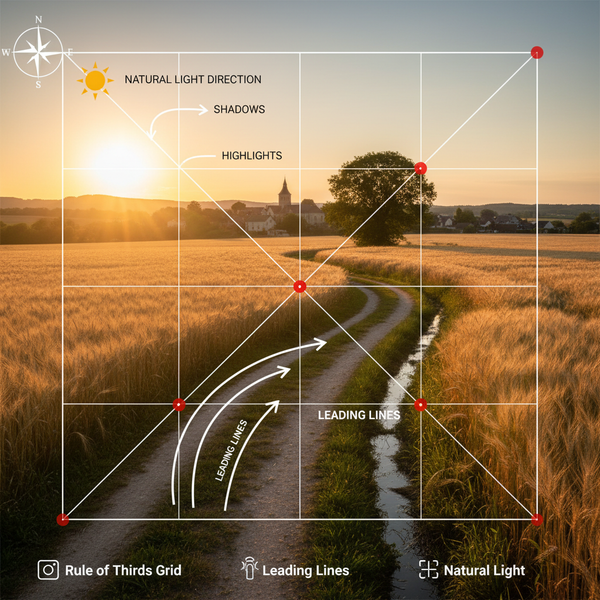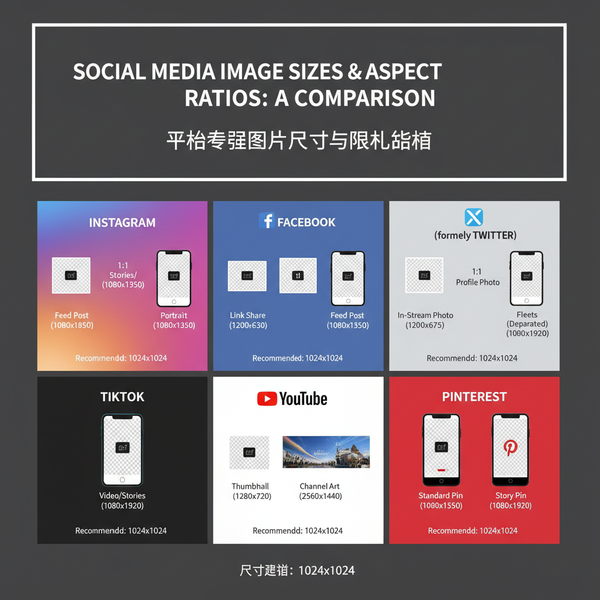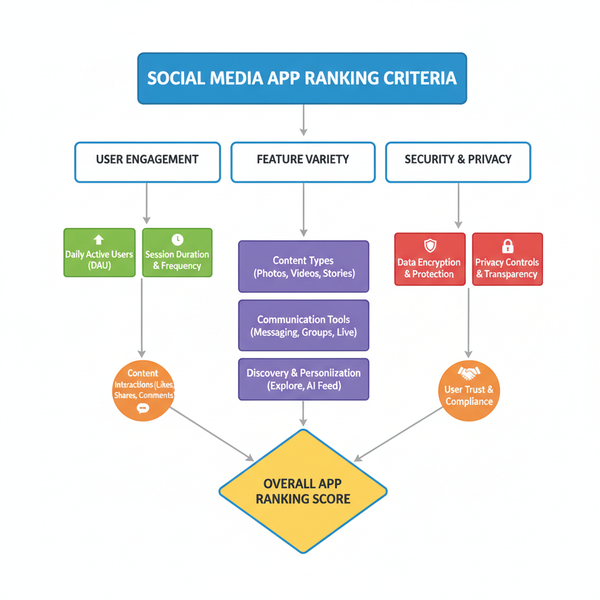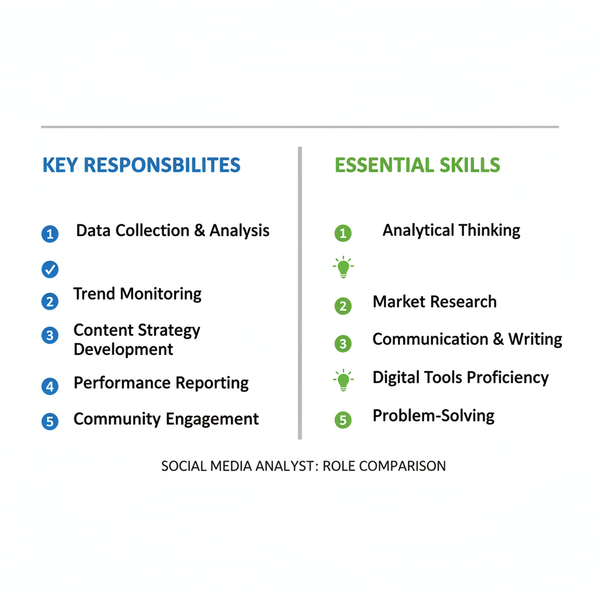Sharing from Instagram to Facebook Step-by-Step Guide
Learn how to link Instagram to Facebook, set up automatic post sharing, adjust audience settings, and optimize captions for cross-platform engagement.
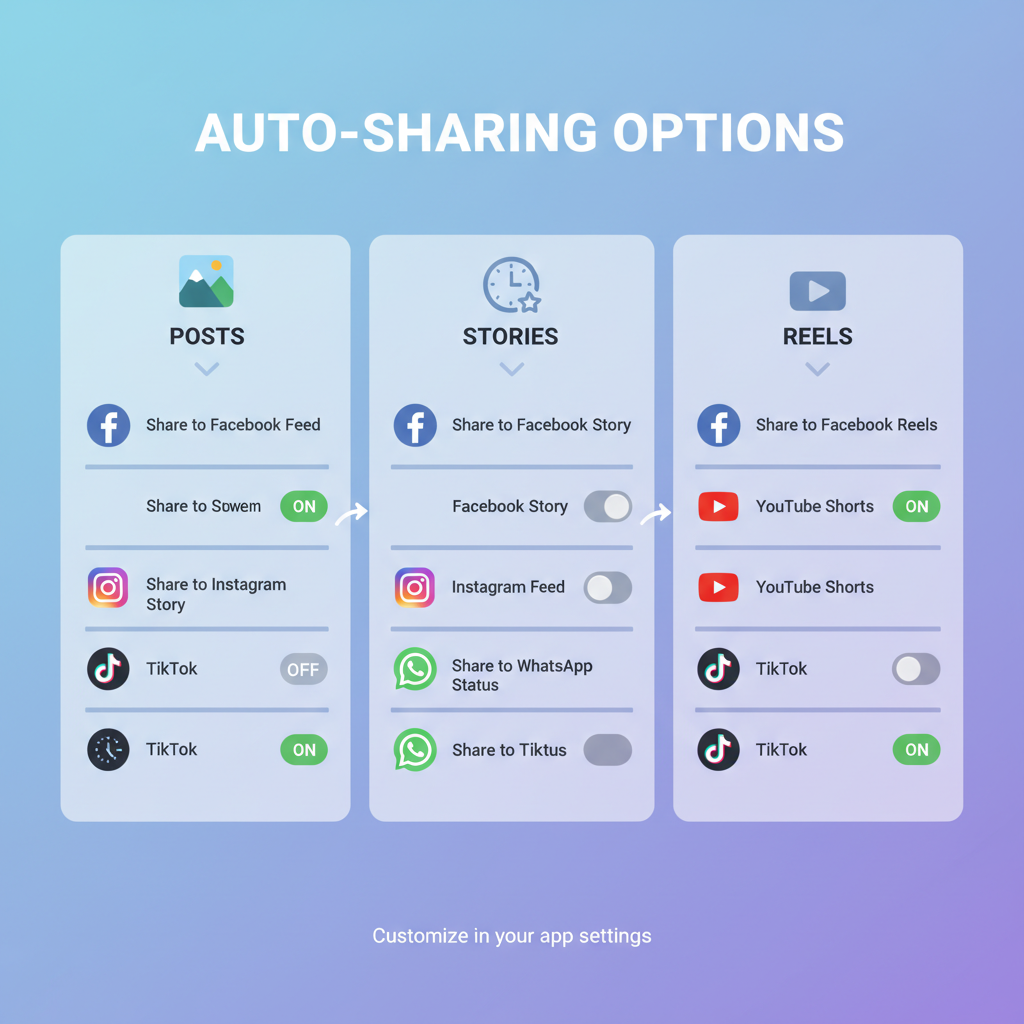
Understanding the Benefits of Cross-Posting Between Instagram and Facebook
Cross-posting between Instagram and Facebook is a versatile social media strategy that lets you publish content to both platforms without doubling your effort. Sharing from Instagram to Facebook enables brands, influencers, and individual users to reach broader audiences, maintain consistent messaging, and streamline content workflows. Since both platforms are part of Meta’s ecosystem, integration is seamless—making it simple to align your visual style and marketing objectives across channels.
Key benefits include:
- Wider Audience Reach – Facebook’s user base skews slightly older than Instagram, allowing you to tap into different demographics.
- Time Savings – Post once on Instagram and have it appear automatically on Facebook.
- Consistent Branding – Maintain a uniform aesthetic and tone across both networks.
- Enhanced Engagement – Give your followers multiple touchpoints to interact with your content.

Additionally, cross-posting helps maintain consistent posting schedules without the stress of recreating content for each platform.
---
Connecting Your Instagram Account to Facebook via Settings (Step-by-Step)
To begin sharing from Instagram to Facebook automatically, you first need to link your accounts:
- Open Instagram App – Ensure you’re logged into the account you want to connect.
- Go to Profile – Tap your profile icon in the bottom right corner.
- Access Settings – Tap the hamburger menu (☰) in the top right, then choose Settings and privacy.
- Navigate to Linked Accounts – Under “Account Center” or “Sharing across profiles,” look for the option to add Facebook.
- Log into Facebook – Sign in with your Facebook credentials.
- Grant Permissions – Allow Instagram to post on your behalf to your Facebook profile or Page.
Once connected, your Instagram posts can be shared instantly with your Facebook audience.
---
Setting Up Automatic Sharing for Posts, Stories, and Reels
Instagram’s built-in sharing options let you automate content distribution:
- In Account Center, select your linked Facebook profile/page.
- Toggle Automatically share feed posts.
- Toggle Automatically share stories and Reels, if desired.
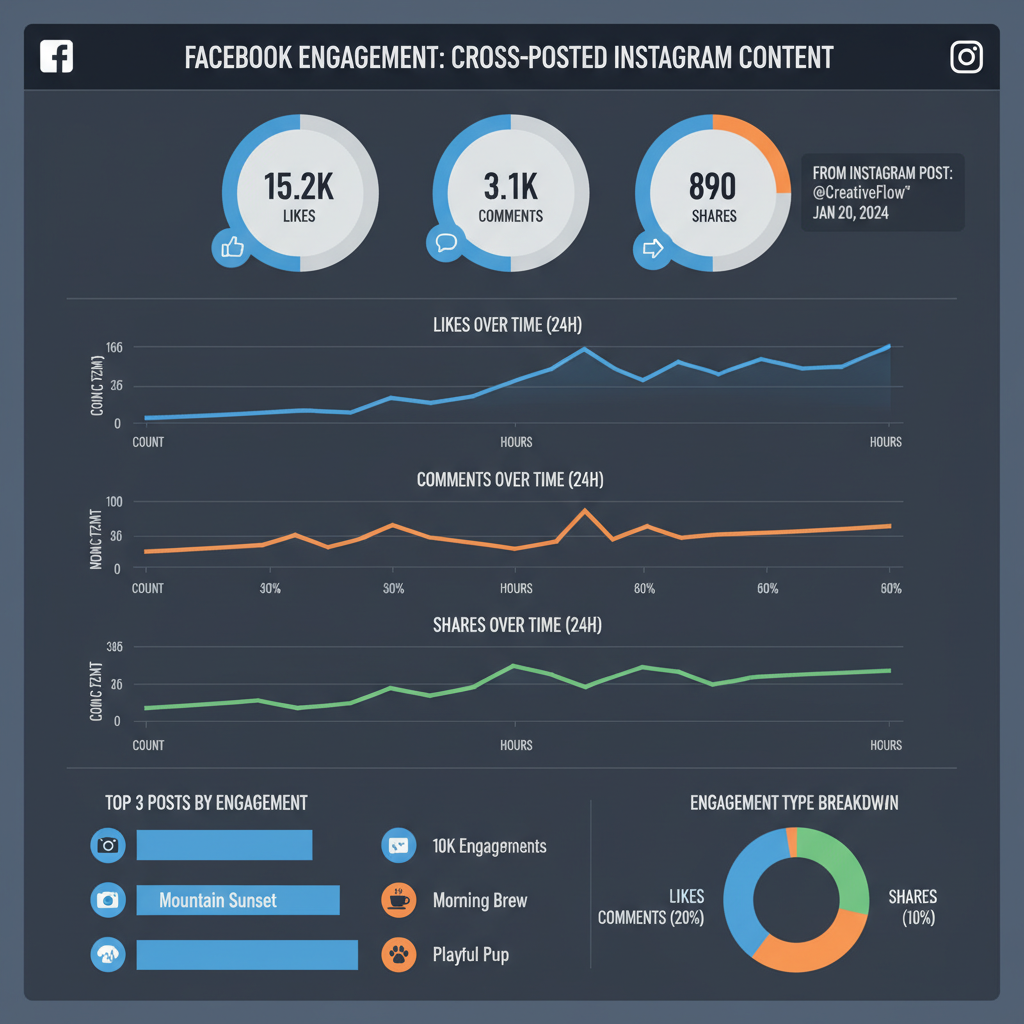
This ensures all your Instagram content types reach your Facebook followers without manual reposting. Automation is especially useful if you run brand accounts where content frequency is high.
---
Choosing Appropriate Audience Settings for Shared Content on Facebook
When sharing content from Instagram, you can dictate who sees your posts on Facebook. Options include:
- Public – Visible to anyone on or off Facebook.
- Friends – Restricted to your Facebook friends list.
- Custom – Set visibility to specific groups or lists.
Adjusting audience settings ensures privacy and allows strategic targeting. For example, public posts can help reach potential customers, while friends-only posts are better for personal updates.
---
Customizing Captions and Hashtags for the Facebook Audience
While Instagram captions might favor hashtags and visual storytelling, Facebook’s audience may respond more to plain text narratives or direct calls to action.
Best practices:
- Edit captions before publishing to Facebook to fit tone and voice.
- Reduce excessive hashtags; Facebook users engage more with clean copy.
- Add links to relevant landing pages, since Facebook supports clickable URLs.
Example approach:
Instagram Caption:
🌿 Loving the fresh vibes this morning! #NatureLover #MorningWalk #SelfCare
Facebook Caption:
Feeling refreshed after a beautiful morning walk at the park 🌿
Read my wellness blog here: www.example.com/self-care---
Reviewing Image/Video Formats for Optimal Display on Both Platforms
While Instagram focuses heavily on square (`1:1`) and portrait (`4:5`) formats, Facebook is more flexible. Ensuring the right aspect ratio can prevent awkward cropping.
| Content Type | Instagram Optimal Size | Facebook Optimal Size |
|---|---|---|
| Square Photos | 1080 x 1080 px | 1080 x 1080 px |
| Portrait Photos | 1080 x 1350 px | 1200 x 1800 px |
| Landscape Photos | 1080 x 566 px | 1200 x 630 px |
| Reels/Stories | 1080 x 1920 px | 1080 x 1920 px |
For videos, ensure file formats are `.MP4` or `.MOV` and keep file sizes manageable for quick loading on mobile.
---
Managing Privacy and Permissions Across Linked Accounts
Linking Instagram to Facebook means granting cross-platform permissions. You should regularly review:
- App access – Revoke old integrations you no longer use.
- Page roles – Ensure only authorized users can manage linked pages.
- Content visibility – Confirm audience settings for each post.
Changes to Meta’s privacy policies may affect sharing functionality, so check settings periodically to avoid unintended exposure.
---
Monitoring Engagement on Facebook After Sharing from Instagram
Once your content is live on Facebook, track how people interact to refine your strategy:
- Likes, Comments, Shares – Basic engagement metrics from each post.
- Click-through Rate (CTR) – Especially important if you include links.
- Video Views & Watch Time – For Reels or video posts.
You can access these metrics via Facebook Insights or Meta Business Suite.
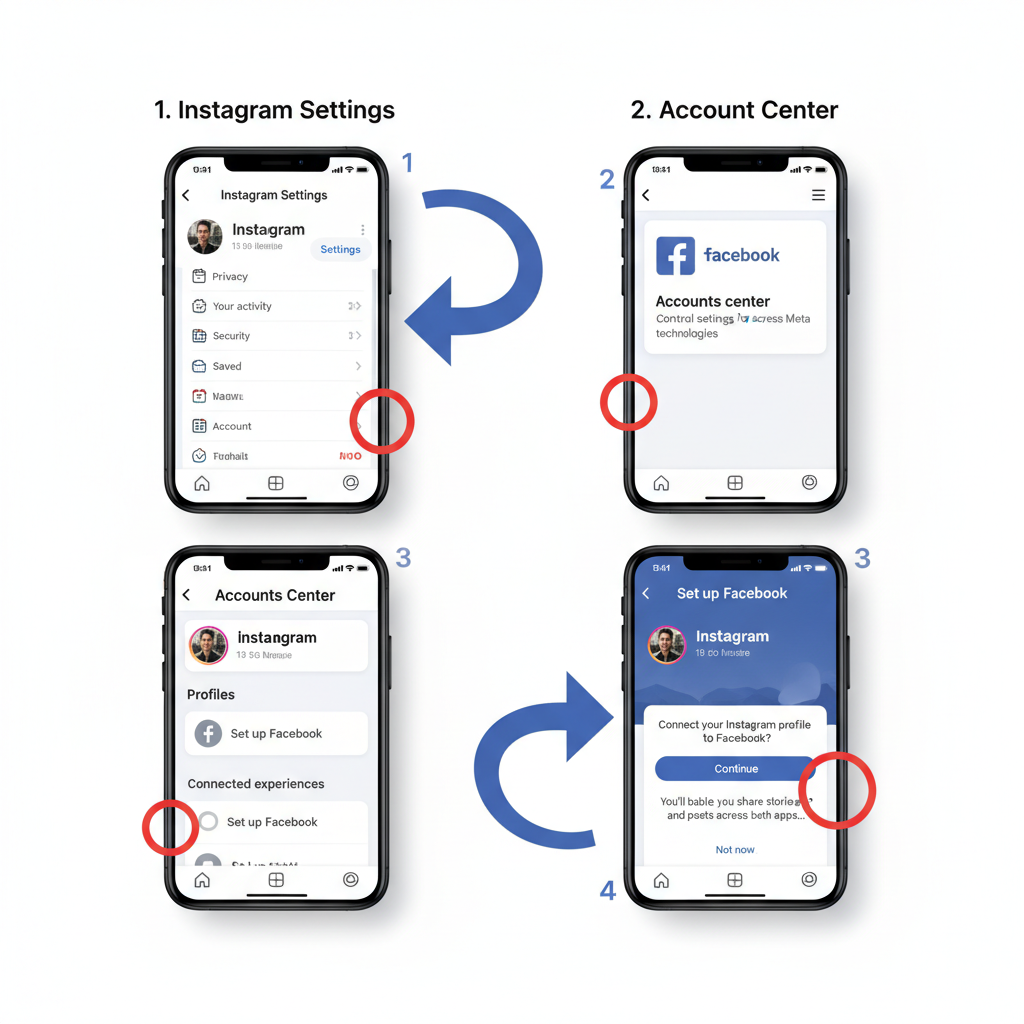
Engagement data will guide improvements in captions, formats, and posting schedules.
---
Analyzing Performance Differences Between Platforms
It’s common to see varying levels of engagement between Instagram and Facebook. Factors include:
- User Demographics – Different age ranges and interests.
- Algorithm Priorities – Instagram favors visuals; Facebook mixes content types.
- Content Context – Facebook audiences may prefer informational captions over Instagram’s image-first focus.
| Metric | Instagram Average | Facebook Average |
|---|---|---|
| Engagement Rate | 5% | 2.5% |
| Average Reach | 10,000 | 8,000 |
| Click-through Rate | 1.2% | 1.7% |
This type of side-by-side analysis helps pinpoint where each platform performs best so you can adapt accordingly.
---
Adjusting Cross-Posting Strategy Based on Goals and Analytics
If analytics reveal stronger performance on Facebook for certain content, adjust your approach:
- Increase direct links if Facebook click-through rates are above average.
- Experiment with post timing to optimize reach.
- Test exclusive content for Facebook to cultivate platform-specific loyalty.
A long-term review of your cross-posting setup ensures you maximize ROI for time invested.
---
Summary and Next Steps
Cross-posting, especially sharing from Instagram to Facebook, offers marketers and creators an efficient way to expand their reach and maintain consistency across platforms. By linking accounts, leveraging automation, tailoring captions, monitoring engagement, and adapting based on analytics, you create a cohesive brand presence that resonates with diverse audiences.
Start by connecting your profiles today, enable automatic content sharing, and use data-driven insights to fine-tune your strategy—so your message makes its mark on both Instagram and Facebook.

